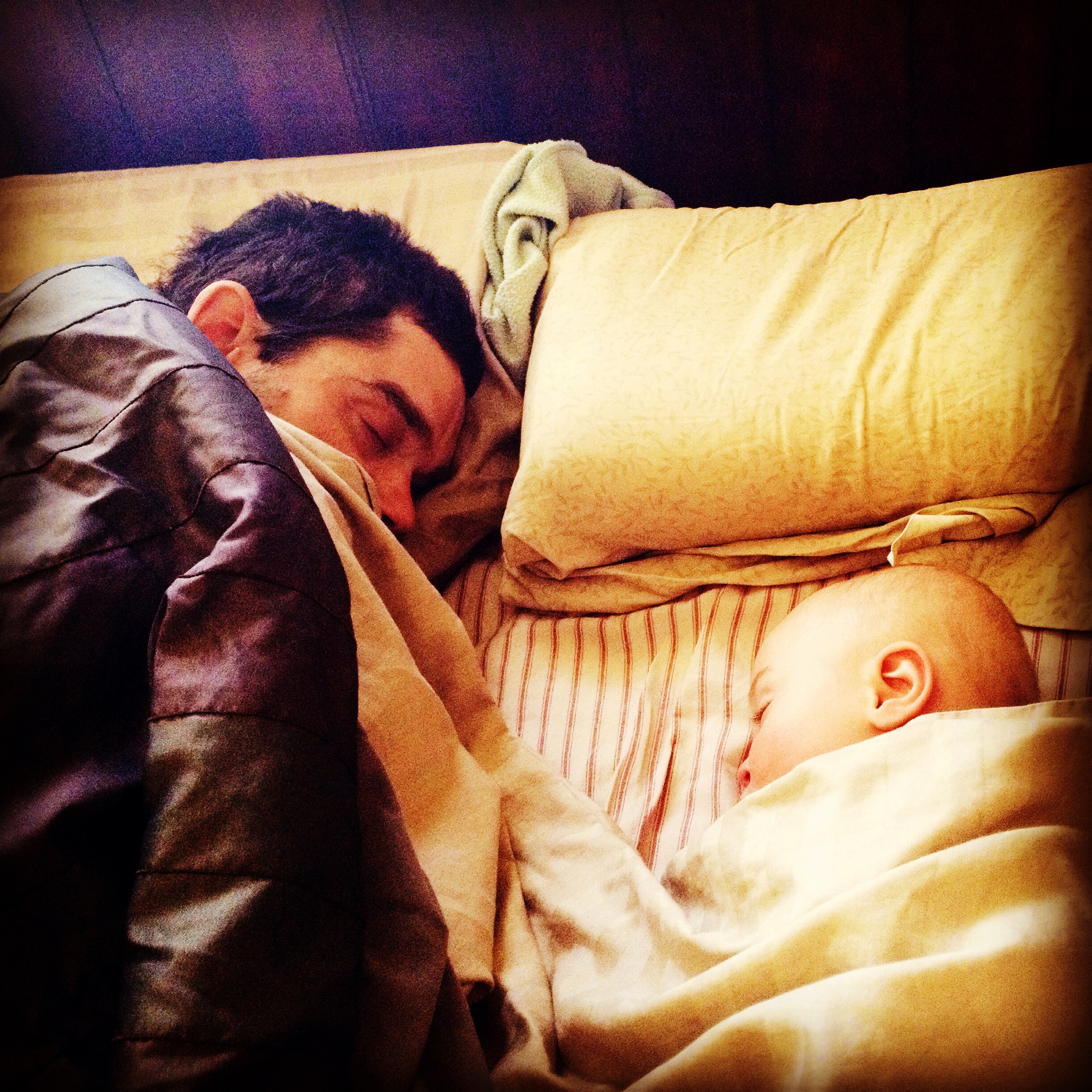Traveling with more families doubles the joys and splits the burdens
This story appeared in The Washington Post
The wind slammed the door into the wall as Billy rushed inside, plate in hand. “Breakfast is served,” he said, presenting eggs to my 2-year-old son with a flourish. Rainwater dripped from his clothes, and a branch crashed to the ground behind him.
I hugged Billy, relieved that I didn’t have to brave the storm to feed my toddler. It’s one of the many perks of communal living. My husband, son and I were three weeks into a month-long stint living with five other families. It was a vacation, mostly, but also an experiment. Ten adults and five children shared one kitchen, one common area and two acres of seaside land. Each family had its own bedroom.
All of the adults had met three years before while working in the South Pacific’s tourism industry, when everyone was childless and carefree. We were giddy at the idea of once again swapping stories and swilling gin-and-tonics on the beach. And at the chance to introduce the babies we’d since made, ranging from nine months to two-and-a-half years old.
Of course, chasing the tots around meant stories were interrupted, and more cocktails were spilled than swilled. Several of us, including myself and my husband, worked remotely for the month, and were more likely to run toward our laptop than into the sea.
Even though our vacation wasn’t as footloose and fancy-free as we’d envisioned, everyone agreed: living communally was the highlight.
When it rained all day, we hung out around the dining table making up ridiculous songs that had the parents laughing harder than the kids. When mosquitoes swooped in, we doled out points to whomever smacked the most dead (double points to insect-killing toddlers). We passed around toys, exchanged home remedies for heat rash and took turns cooking meals, buying groceries, or pushing tots in the tree swing.
In short, we shared everything, which doubled the joy and split the burdens.

It wasn’t my family’s first go-round with communal living. My husband and I prefer it, actually, both on vacation and in everyday life. My sister lives with us between her work trips abroad. Our neighbors know they can show up for dinner uninvited — as long as they don’t mind us doing the same. On weekends, we often go camping by a creek or rent an old cabin, inviting a half-dozen families to share time and space with us in the woods.
Why? Because communal living makes parenting easier. Here’s how:
Fewer chores. My favorite part of living with other families is not having to cook dinner every night. Or at all. Living communally means splitting the daily work, which is more efficient. Each adult picks tasks we like the most (or dislike the least), whether it’s cooking, repairs, cleaning or errands. Sure, it takes me a lot longer to do the dishes for 15 people, but it’s still a fraction of the time I’d spend if I were home alone — when I have to buy the groceries, cook the meal and do the dishes. Plus, I have a friends to chat with while scrubbing pots.
Constant entertainment. On days I’m home alone with my son, I exhaust my supply of make-believe games and “funny” poop jokes by 10 a.m., leaving both of us grasping for ways to fill time. With other parents nearby, there’s always a fresh influx of imagination to share with the kids. And parents get to play more, too. Once the kids go to bed, fellow commune dwellers often whip out a board game, blast dance music, or strum guitars around the campfire.
Sharing toys. Pooling resources saves more than money — it also exponentially increases the odds of educating and engaging your child. That book about dump trucks that you read 52 times last week? You can trade it with a friend for a story about frogs on a log, placating two kids (and their mamas) at once. Swapping books, clothes and toys also keeps packing to a minimum, which is helpful when traveling.
Learning opportunities. Parenting in a group gives both kids and adults valuable insights on new ways to do things. By watching my friends, I learn new tricks for everything from disciplining to cooking. And so does my son. On the island, he learned to share better with others, eat foreign foods, speak in an Australian accent and use the potty, thanks in large part to the many co-parents.
Built-in babysitters. At home, I get maybe 10 minutes in front of my computer before my toddler is pushing keyboard buttons. But with other parents nearby to take turns entertaining the pack of wee ones, I can work uninterrupted for hours at a time while my son explores with his buddies and another supervising adult. Plus, living communally provides the added perk of being able to sneak off for some alone time with your partner, too.
Even with all these pros, though, living communally isn’t easy. And it’s definitely not for everyone. Living hip-to-hip without walls is often messy or uncomfortable, and occasionally it is overwhelming.
People in Western cultures are used to having plenty of personal space to shield us from other families’ bad moods and dirty laundry. That’s why it’s nice to experiment with communal living during short-term situations, such as on vacation.
If you’re interested in creating your own short-term commune, here are a few ways to make the most of the experience:
Choose wisely. Pick people you like to be around. Try to factor in parenting styles to ensure you’re surrounded by like-minded families. Select your venue carefully, ensuring it’s kid-friendly, first and foremost. It often helps to find a neutral space rather than crowding into one family’s home. If you feel more comfortable indoors, find a vacation rental that’s big enough for everyone. If you like the idea of not worrying about constant clutter, try camping instead.
Be helpful. One of the fastest ways for the ideal to disintegrate is when not everyone pulls their weight. Sure, it’s flexible and chores can change each day. But the group notices who routinely jumps up after dinner to do the dishes and who drifts to the couch instead. Volunteer early and often for tasks that make your friends’ lives easier, and everyone will end up feeling good.
Be brave. Step out of your comfort zone to allow others to help you, and vice versa. Try new foods, grateful that you didn’t have to cook the meal. Let other adults take your kids on an adventure, even though it might make you nervous. Join in for charades even if you’re usually too shy for acting games.
Be flexible. Part of the benefit of communal parenting is learning how others raise their kids. But it can be confusing — for you and your kids — when discipline styles or daily routines differ. Try letting go of expectations and adapting to the more chaotic communal setting, which might mean accepting new sleeping or eating schedules. As for discipline, treat your friends’ kids as you treat your own, and trust that your co-parents will do the same.


